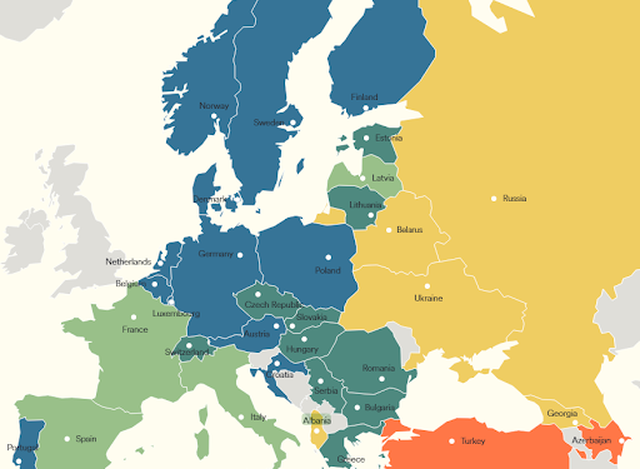
In today's world, English demonstrates a strong network effect: the more people use it, the more useful it becomes. More than a billion people speak English as a first or second language, and hundreds of millions more as a third or fourth. For expanding businesses, new graduates, scientists and researchers and international tourists, English proficiency expands horizons, reduces barriers and speeds up information exchange.
Taking this into account, the most recent report on English language learning, conducted by EF Education First, highlights which countries have taught English as a second language better than others. For the third year in a row, the Netherlands tops the list.

Albania ranks 50th, or among the least English-speaking countries in Europe. As for the rest of the region, Serbia ranks best, grouping in the group of countries that know it well, Macedonia in the group of Albania, while Kosovo is not on the list.

The Nordic countries again dominated the English language rankings: The Netherlands ranked first, followed by Sweden, Norway and Denmark. Switzerland remains in the group of "high" English speaking countries, but EF noted a slight decrease in all German language regions. Meanwhile, major countries, such as Spain and Italy, are also ranked 35th and 36th, respectively. Saudi Arabia, Kyrgyzstan and Libya rank lower.

The incentives to learn English have never been greater than in our global day, the report points out. And yet, the demand for English profits outstrips supply. The education systems established in response to the first industrial revolution have not yet adapted to the fourth requirements.

We often see English proficiency presented as a competitive advantage, but a recent report suggests it is just as important for the connections it enables. These links can help individuals find better jobs or start their own businesses.
Source: Monitor





